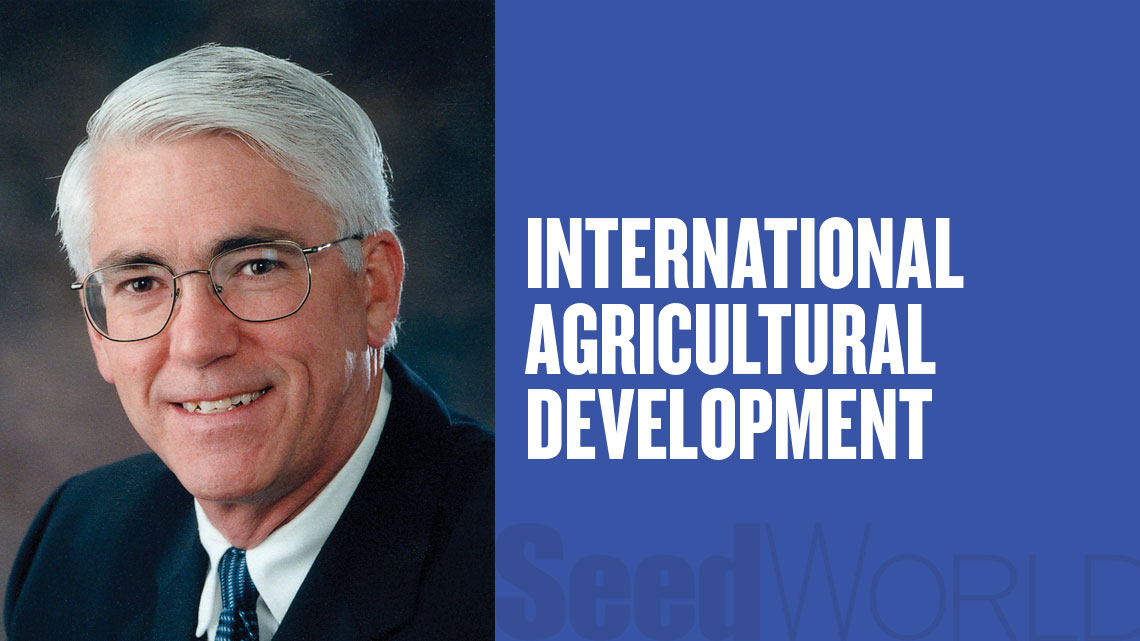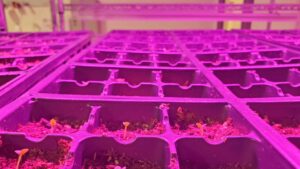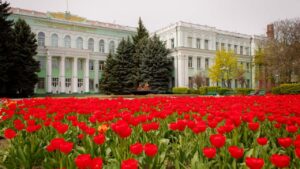The people of Pakistan exhibit nothing if not passion. Those hailing from agriculturally prominent Punjab, the country’s second largest province, are no exception. The University of Agriculture, Faisalabad (UAF) has emerged as a hub of activity for those dedicated and devoted to strengthening the nation’s seed industry.
Growing national concern over food security issues and the desire to modernize production agriculture have coalesced and now underpin popular movements to strengthen the seed industry. That being said, the task of how best to move forward is a challenging one. Stakeholder viewpoints often differ as to what might be appropriate for a more highly developed seed industry, and they work diligently to find common ground.
UAF, in the personage of vice chancellor professor Iqrar Ahmad Khan, is credited with fostering an effective public-private partnership atmosphere. Students enjoy new formal and informal seed-related educational opportunities. Industry leaders and governmental officials benefit by having an opportunity to function in a more collaborative environment as they work to iron out differences and shape their industry. Society, as a whole, is the ultimate benefactor.
Professor Asif Ali Khan, former UAF director of Office of Research, Innovation and Commercialization, is a real “fire in the belly kind of a guy.” He previously worked with the vice chancellor related to seed industry development initiatives. Now, as vice chancellor of Muhammad Nawaz Shareef University of Agriculture (MNSU), Multan, he is based in the centrally located Cotton Belt region of Punjab.
Sparking A Movement
Arguably, the formation of the Pakistan Seed Association (PAKSA), both a highly visible and viable public-private partnership can be credited as being a catalyst for other industry development efforts. Energetic and well-spoken former Fulbright Scholar and associate professor, Irfan Afzal stands out among many at UAF responsible for the association’s success.
Membership of PAKSA spans the range of private seed companies from the very small locals, to regional, national and multinational seed companies. It brings seed companies together for meaningful dialogue with academic personnel and regulatory bodies. PAKSA initiatives have ranged from organizing educational seminars and workshops to facilitating discussions about modifying seed laws and establishing legislation that recognize plant breeders’ rights.
A new undergraduate seed technology major option for students merited industry appreciation and student acclaim. The major provides students a pathway for entrance into the industry. Twenty-six students lay claim to the new credential having recently completed the eight-semester regimen including an internship. Students gained valuable hands-on experience.
UAF collaborated with PAKSA in December to host a successful first Pakistan Seed Congress. The congress brought together representatives from 59 national, local and multinational seed companies and more than 40 research and governmental organizations. More than 125 UAF students, faculty and administrators also participated in the congress.
Presentations were delivered by both Pakistani and international experts, and topics ranged from technical and scientific issues to that of seed industry development and engagement.
While many at UAF work to further the development of the seed industry, their efforts often go unheralded. The reflective and ever-thoughtful professor of plant breeding and genetics, Zulfiqar Ali was recently named director of the Office of Research, Innovation and Commercialization at MNSU, Multan. Now he plans to conduct research on both campuses, while maintaining his rice and wheat functional genomic research programs and expanding the scope to include soybean.
Another is plant breeding and genetics assistant professor, Hammad Nadeem. He is gaining recognition within the industry as an emerging leader working with oilseeds and fodder crops. He now manages UAF’s newly compiled soybean research portfolio and seeks resources to underpin the research.
Seed companies are more engaged, and with a broader range of stakeholders, than ever before. They are vigorously working toward development of a more modern seed industry. The stakes are high. Opportunities exist. The players are passionate. Might success be found around the next corner?













